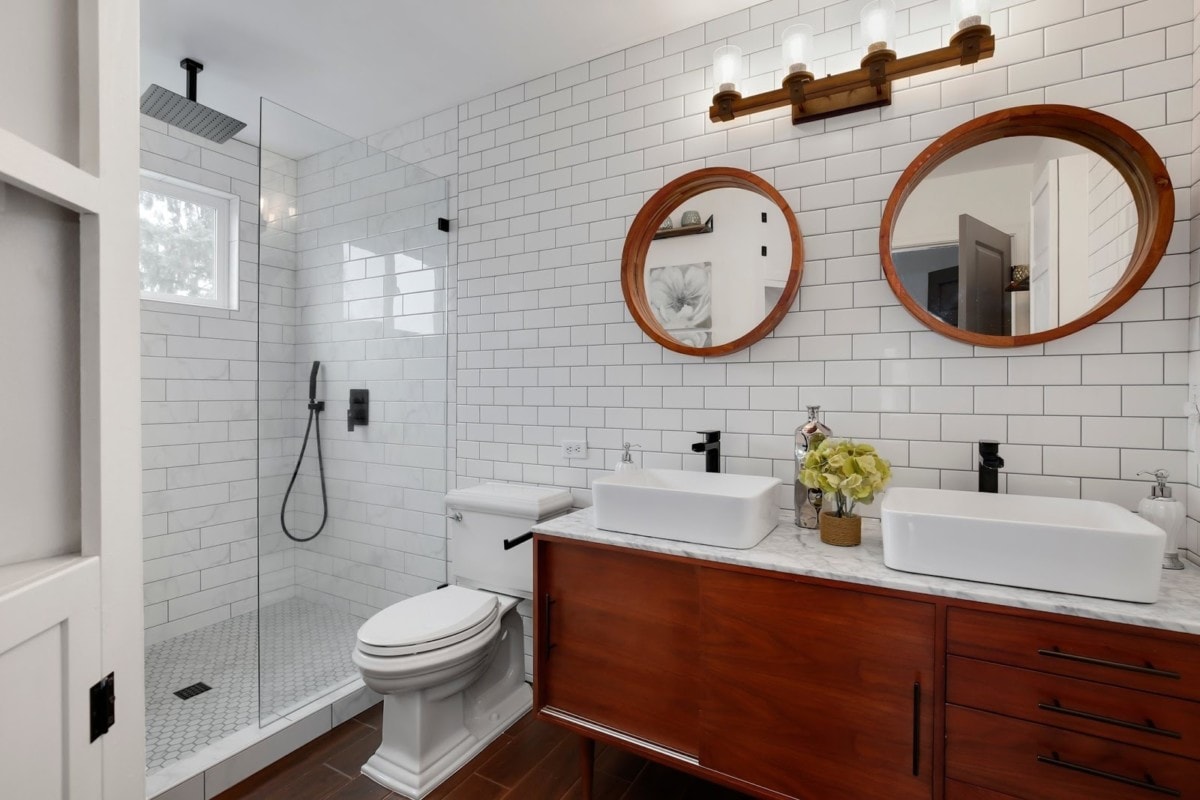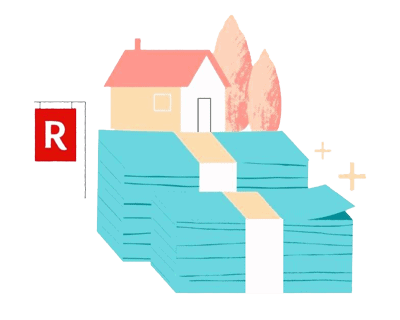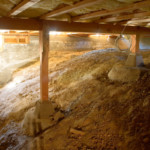Buying a home is a significant investment, and ensuring the house is in the best condition possible is a top concern for any buyer, regardless of whether it’s your first home or investment property. It’s easy to get caught up in the excitement of buying a home, but you’ll want to make sure you include a home inspection in your list of priorities to avoid any potential issues or unforeseen costs as you get further into the homebuying process.
A general home inspection is almost always recommended for anyone buying a home. However, savvy buyers will do their due diligence by scheduling specialty home inspections, especially if the house is older or has specific features. From the roof all the way down to the foundation, there are several specialized types of home inspections you may want to consider before sealing the deal on your dream home.

Do I need a specialized home inspection?
“When discussing the importance of any type of home inspection with a client, I find the analogy of people seeing a doctor helpful,” says Brian Wendorf of Integrated Home Inspections. “Getting a home inspection is like seeing a trusted general practitioner who will evaluate overall health and recommend seeing a specialist when there is a question or concern about something that may be a latent issue. The things we can’t see can expose the greatest concerns to our underlying health. Like our bodies, a house can be seen as a holistic set of systems and structures. It’s important to get a home inspection to help understand the condition, need, and overall viability of a home’s usefulness to provide a happy and healthy place to call home or a sound investment.”
Depending on the home’s age, location, or condition, you might consider special types of home inspections to investigate potential issues common in homes in your area. General home inspections are great at giving you an idea of the overall state of the house at that point in time, but they do not typically test for things like asbestos or mold. “From crawl spaces to foundations, plumbing to HVAC systems, these inspections provide peace of mind, uncover hidden issues, and ensure you’re making a wise investment in a safe and comfortable living space,” says Luis Roses, owner of MIA Inspections. “Don’t settle for uncertainty; let comprehensive inspections protect your investment and bring you lasting peace of mind.”
When it comes to buying a home, you want to make sure you know all there is to know about the property before signing on the dotted line. In fact, here are 19 different types of home inspections you should consider:
1. Roof inspection
Most general home inspections will catch obvious roof problems, such as dark streaks or stains on your ceiling or loose shingles, with a visual inspection from the ground. However, a roof inspector will conduct a more thorough inspection that may reveal issues that aren’t visible to the untrained eye. This can include checking for leaks, unsecured shingles that could allow water to enter the home, and the condition of the gutters.
“Your roof is your home’s shield against the elements,” says Preston Smith of Mahogany Premium Home Inspections. “A roof inspection during a home inspection can help you spot problems early and save money on repairs. Peace of mind is priceless.”
2. Chimney inspection
A chimney inspection can alert you of any potential problems in the firebox or flue, buildup, or blockages that you can bring to the homeowners to fix before closing on the home. Like all inspections, the inspector will perform a visual assessment for exterior cracks or damage in the mortar and clear the chimney of any buildup of creosote (a byproduct of burning wood) that can combust if left untreated. This type of home inspection aims to prevent chimney fires and smoke or odors from seeping inside the home when the fireplace is lit during the colder months.
3. Attic inspection
The roof may look sound and secure from the outside, but there may be signs of structural damage in the attic that can be easily missed with a general inspection. If you’re planning to look for your dream home in Phoenix, AZ to enjoy sunny weather year-round, you can expect to have your air conditioning running day and night, which can easily add to your energy bill. An attic inspection will let you know if there’s sufficient or damaged insulation that needs to be remedied. Moreover, a trained specialist will have the equipment necessary to identify signs of mold or moisture that can compromise the foundation’s integrity.
“Many people, including some roofing companies, don’t understand the importance of roof or attic ventilation or the proper way to install a venting system,” says Sean Brady of SpecQuest. “Getting a home inspection that includes the attic can help identify deficiencies in this area which can help prolong the life of a roofing materials and insure the structural integrity of the roof framing members.”

4. Electrical inspection
Regardless if you’re looking at a new construction or an older home, making sure the wiring is up-to-date and complies with city codes will help you avoid any troubles later on. Safety, comfort, and improved energy-efficiency are a few of the benefits you will gain from having your electrical systems inspected by a professional. Wires can become frayed and damaged from regular wear-and-tear and pose a dangerous fire hazard to your home and family.
In addition to roof inspections, Peter Kirchgessner of Good Dog Inspections recommends that homeowners get their electrical systems looked at. “There is peace of mind in knowing the condition of the home but even more importantly is finding out what critical components are in need of repair for safety and financial reasons, he says. “A faulty or aging roof can cause water damage that can lead to mold. A dated and dangerous electrical panel or bad wiring can lead to house fires. Both are expensive repairs initially but far less expensive or dangerous if dealt with timely and with confidence before purchase.”
5. HVAC inspection
A strange sound or smell could indicate an underlying issue that could affect your HVAC system, leading to increased heating and cooling costs, or worse, needing to replace it with a whole new system. An HVAC inspection provides a clearer picture of the home’s heating and cooling system, and can even give you recommendations for repairs or energy-efficient upgrades.
“The AC unit is one of the most used components in the home, says Kal Hoffman of Miami Divum. “HVAC and vent inspections are probably one of the least thought about, but most cost-effective actions that a homeowner can do once every three to five years. A well-functioning unit with proper ventilation will not only pay for itself, but will also continue to save the homeowner money throughout its lifespan.”
6. Mold inspection
Just because you can’t see mold doesn’t mean there isn’t any lurking away in your dream home. In fact, a mold problem could indicate that the home is harboring larger issues such as water damage, leaks, or even flooding.
“Mold inspections involve a comprehensive visual assessment of the property to identify visible mold and potential mold-conducive conditions,” says Randy Cottrell of Blue Crab Inspections. “Advanced tools like infrared imaging and moisture meters are employed to detect moisture intrusions or dampness not visible to the naked eye. Air and surface samples might be taken and sent to a lab for microbial analysis to determine the type and concentration of mold spores present.”
Cottrell adds that mold in the home can be a health hazard, particularly to those with respiratory issues or allergies, and fixing the problem can be costly if it isn’t addressed in a timely manner.
7. Pest inspection
Termites and other wood-loving pests can cause irreparable damage to the property that is costly to replace. A general home inspection may show areas of damage that might attract these unwanted guests, but only a trained specialist can definitively identify if there is continuing presence of pests, such as termites, carpenter ants, rodents, spiders, in your home’s exterior and interior, how large the infestation is, and how long the pest has been there. Not only will it save you a headache from dealing with a potential infestation, getting a pest inspection conducted early on will let you know you’re investing in a pest-free home.
8. Lead-based paint inspection
Older homes built before 1978 – and even some after – could contain lead-based paint and are highly recommended to be tested by a trained professional. Even low levels of lead-based paint may cause health issues and can be hazardous if you’re buying a home with young children. A specialist will check for peeling or chipped paint around the house and collect samples to be tested in a lab for the presence of lead.

9. Plumbing inspection
A plumbing emergency is never convenient. To prevent issues like a sewer backup or a failing water heater from becoming a homeowner’s nightmare, investing in a plumbing inspection before making the down payment can bring underlying issues to light. A professional will either conduct a visual inspection or use a diagnostic camera to verify that fixtures and appliances are installed properly and check for signs of water damage under or behind appliances.
10. Septic inspection
Like plumbing emergencies, a malfunctioning septic system can spell costly repairs (and unpleasant odors) if not caught before you’re under contract. A trained professional will locate and assess the septic tank, sludge layer, and absorption area to ensure all components are in working order and that the tank is the right size for the home. You definitely wouldn’t want to buy a home with a failed septic system, so consider a septic inspection if you’re buying a home with a septic tank.
11. Radon inspection
If you’re looking for your future home in regions where basements are common, requesting a radon test as part of the home’s overall inspection can help bring you peace of mind. Nearly 1 out of every 5 homes in the United States has elevated radon levels, and the EPA recommends that all houses be tested for radon levels during the point of sale. In most cases, you can request the seller’s previous radon test results as part of the home inspection and use that as a point of comparison.
“Radon testing is important because it is the second leading cause of lung cancer in the US,” says New South Property Inspections owner Wes Grant. “Home Inspections are important because a house is the largest personal investment anyone normally makes so it’s imperative that you perform as much due diligence as possible to determine the potential repairs needed to maintain the value and condition of your property investment.”
12. Asbestos inspection
If you’re buying a home that was built before 1975, there’s a chance asbestos may be present in one or more of its construction materials. An asbestos inspection should be conducted by a certified asbestos removal company. Keep in mind that while asbestos tests take time, the entire home is inspected to ensure no asbestos-containing materials remain in the home you want to purchase. If the inspector recommends a removal, make sure this is addressed before signing off on the contract.

13. Pool or spa inspection
A pool is a great outdoor amenity, but not inspecting the pool’s structure and equipment systems, such as its pumps, heaters, and filters, could cause many problems down the road. Beyond being leak-free and solid, the pool’s plumbing system needs to be inspected to ensure the water is draining properly, and that the safety covers and hardware are sufficient to secure the pool when not in use.
14. Soil stability inspection
The state of the soil around the property can play an important role in determining if the home’s foundation adequately supports the soil that surrounds it. After all, you don’t want part of the hill your future home is sitting on to slide away during a rainstorm. A soil analysis by a trained professional can help prepare you for the potential issues of hillside living and will test for the probability of erosion, gillies, or mudflows due to the soil shifting.
15. Foundation inspection
Whether you’re a seasoned or first-time homebuyer, a foundation inspection can easily be overlooked when going through the types of home inspections you should consider. Large cracks in the exterior and interior walls, uneven floors, gaps between walls and the ceiling, or even doors that won’t close properly are potential warning signs that there may be bigger foundational issues that have gone unnoticed. A structural engineer can identify these problems, and you may be able to bring these up to the seller to fix during negotiations – saving you time and money by preventing the conditions from worsening.
“A foundation inspection is crucial in telling the story of a house,” says Dave Tague of Tague Home & Property Inspections. “An issue with the foundation will affect the structure above it. There will likely be angled cracking above doors and windows, and even the brick veneer on the outside of certain homes. Doors may rub and not close correctly. Supporting structures in the attic may show signs of foundation movement. A complete home inspection is always a good investment, but it all starts with the foundation.”
16. Crawl space inspection
Homes with crawl spaces in areas where there’s high humidity, like Seattle, WA, should be strong contenders for a crawl space inspection. As moisture condensates on surfaces in the crawl space, mold, wood rot, and even termite infestations can occur due to the space becoming increasingly humid. A professional will identify signs of a rotting crawl space and save you from making a costly mistake.
“It’s imperative this space is inspected,” says Richard Gaines of San Diego’s Home Inspector. “Issues such as cracked foundation walls, plumbing leaks, old electrical wiring, mold…health and safety are my main concern and all these issues directly affect the health and safety of the home and its occupants.”
17. Phase inspection
Phase inspections are a crucial aspect of the construction process for new houses. These inspections are conducted at various stages of construction, typically encompassing three key phases: pre-drywall, pre-closing, and final inspections. Phase inspections for new houses are vital to guarantee the quality and safety of the construction, providing homeowners with peace of mind and assurance that their new home meets all necessary requirements.
“Phase inspections are like checkpoints in a construction video game,” says Didya Bianchi of Bianchi Home Inspections. “By getting inspections during each phase, such as foundation, framing, and final inspections, you’ll catch any glitches or construction snafus before they become full-blown disasters.”
18. Sewer inspection
Sewer inspections play a crucial role in ensuring the functionality and integrity of the sewer system in new homes. These inspections involve a comprehensive assessment of the sewer lines and components to identify any potential issues or defects.
“Sewer line maintenance is often overlooked yet can be extremely expensive to repair or replace,” says Amanda Ables of Noble Property Inspections. “A sewer scope is a visual examination into the plumbing and sewer systems to identify any defects or damage. Common problems discovered during a sewer scope can include breakage, leaks, bellying, collapsing and clogs of the sewer lines.”
“A whole house inspection is a limited visual inspection that can reveal issues that need further evaluation,” adds John Deller of Buy Right Home Inspections. “Therefore, in addition to a whole house inspection, a sewer camera inspection can be beneficial in determining if the lateral line has any minor or substantial defects or if the system is serviceable.”
By conducting sewer inspections before the purchase or occupancy of a new home, potential buyers or homeowners can uncover any hidden sewer issues that may require immediate attention or future maintenance. Early detection of problems through sewer inspections helps prevent costly repairs and ensures a smooth and uninterrupted wastewater disposal system in the new home.
19. WDO inspection
WDO inspections, short for “wood-destroying organism” inspections, are essential evaluations conducted by licensed professionals to assess the presence of pests that can damage wood structures in homes or buildings. These inspections primarily focus on identifying termites, carpenter ants, wood-boring beetles, and other wood-destroying insects that can compromise the structural integrity of a property. During the inspection, the licensed inspector thoroughly examines the interior and exterior of the building, including crawl spaces, basements, attics, and all accessible wooden elements.
Tyler Quintard of Odyssey Home Inspection suggests that homeowners should have WDO inspections and general inspections done by different companies. “WDO inspection is a quantitative inspection, outlining all areas of concern regarding wood rot, activity, and deterioration typically paired with a bid for repairs,” he says. “These inspections should always be performed by two inspectors, and you should always do your due diligence when identifying the right professional for each that has your fiduciary interest in mind.”
Are these different types of home inspections worth the investment?
While they could add up in costs and time, specialized home inspections can give you peace of mind in the long run. “Just like a good lawyer can save you thousands down the road, a thorough home inspection can save you the heartache of unexpected repairs and replacements,” says Kyler Piedra of Kore Home Inspections. “A home inspection helps mitigate your risk and inform your purchase decision.”
“Prior to purchasing a home, it’s vital for purchasers to understand the significance of a comprehensive home inspection that covers essential elements like electrical, roof, attic, chimney, soil stability, and pest control, addressing the pivotal facets of systems, structure, and safety, commonly known as the 3 S’s,” says Holly Newman from LunsPro Home Inspections. “An evaluation of the electrical systems ensures their functionality, and comprehensive assessments of both the roof and chimney guarantee the integrity of the property’s structural foundation. An examination of the attic confirms the adequacy of insulation and ventilation, while a meticulous analysis of soil stability proactively prevents potential foundation issues down the line.”
“While waiving a home inspection may provide a competitive advantage in a competitive housing market, it can also expose you to significant risks,” adds Stephen Roberts of Boston Light Home Inspections. “Without a professional inspection, you might miss important information about the property, which could lead to unforeseen expenses or potential safety hazards down the line.” These types of home inspections help reveal problems in-depth that a general home inspection might only highlight as a possible issue. You can notify the current owners as soon as possible to get the repairs underway in case you want to continue with the home purchase. Addressing these issues early on in the home buying process is key to saving you money down the road.
Additionally, inspections can give you an upper hand when negotiating a sale. “Buying a home is probably the most significant investment you will make,” says Jeff Longaker of Inspect Pro LLC. “Protecting it is critical. A home inspection is an essential step in the home buying process. The inspection can uncover vital information about the house’s condition, so you are making an informed decision. Having a home inspection empowers the buyers to negotiate in certain market conditions.”























